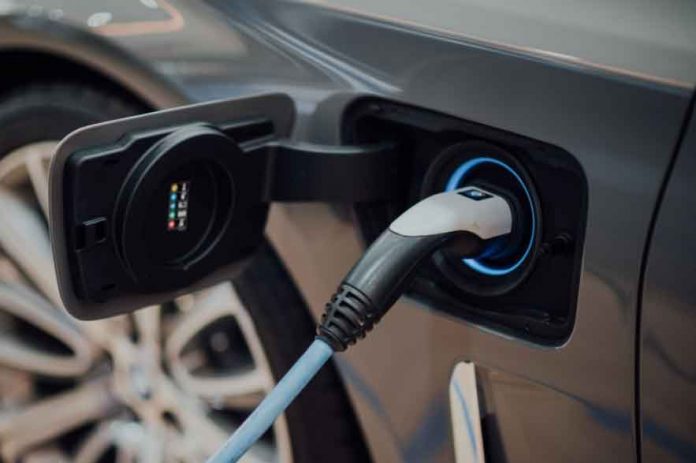By Matt Casadona
When purchasing a new car, you have a lot of choices. One decision many people have a difficult time making is whether to purchase a hybrid or electric vehicle like a Tesla. Hybrids use a combination of traditional gas and electric motors, while electric vehicles (EVs) are run on electricity alone. In this article, we’ll discuss hybrid and electric vehicles so you can determine which is right for you based on your needs.
What’s a Hybrid Vehicle?
Hybrid vehicles have electric motors and gasoline engines, a system that recaptures energy using regenerative braking. The vehicle switches between the electric motor and gas engine to move the vehicle, but they can also work simultaneously. The hybrid system results in less gasoline and better fuel economy.
The electricity is generated with a high-voltage battery pack that captures energy during deceleration. Hybrids use the gas engine to charge the battery.
What’s an Electric Vehicle?
An electric vehicle is powered using electric energy. Unlike hybrids, EVs don’t require gasoline at all. Instead, they use a battery that could be charged every day. EVs require less maintenance because they don’t require gasoline and have fewer parts. They also create less noise and don’t burn any fossil rules.
These vehicles are typically charged at night in a garage or at a public charging station. Unfortunately, many EVs are not ideal for long journeys. However, this is quickly changing as many EVs offer almost the same range as traditional vehicles.
Charging times for EVs are long compared to how long it takes to gas up your vehicle. It can take up to 30 minutes at a public charging station or more than twelve hours at home. The EV industry is constantly evolving, and manufacturers are coming out with new EVs with better range and friendlier price tags every year.
Plug-in Hybrids
Now that you understand the differences between hybrids and electric vehicles, it’s time to learn about plug-in hybrids. These vehicles are hybrid vehicles that plug into an outlet like an EV, but they still use gasoline. When the battery is drained, the gasoline kicks in and takes over. Plug-in hybrids help reduce the range anxiety associated with hybrids and allow you the convenience of not having to stop at a charging station on your way home from work.
Hybrid vs. Electric: Which is Right for You?
Here’s what you should consider to help you decide whether to purchase a hybrid or electric vehicle.
Gas Prices

When gas prices are low, many people don’t feel the need to use alternative fuel cars like hybrids or EVs. Hybrids run on fuel and electricity, while EVs run electricity alone. Hybrids typically offer more convenience because you can fuel up at any gas station and use gas as a backup for when your electricity runs out or vice versa.
Cost of Electricity
Now that EVs are becoming more popular, many EV drivers are getting chargers installed in their homes, so they don’t have to charge at a public charging station. Unfortunately, electricity can be just as expensive, if not more, than gasoline.
Range
The concern right now with EVs is they don’t have the same range as gas-powered vehicles, which means they’re difficult to road trip in unless you plan to frequently stop at public charging stations, and know which ones to stop at. Not only that, but if you’re driving in a rural area, you might not have any charging stations available to you. Hybrids offer a better range because you can start your journey using electricity and switch to gas when you run out of power.
Incentives
The government is currently offering incentives for EV drivers to reduce the United States’ carbon footprint. Some states also offer their own incentives. California, for example, offers thousands of dollars when you purchase an EV. They are also offering incentives for plug-in hybrid vehicles that can be charged.
The Environment
Both hybrids and electric vehicles can help you reduce your carbon footprint. Many people consider these types of vehicles because they want to make more eco-friendly choices and help the environment. EVs and hybrids are greener options, but it depends on their power source.
Vehicle Cost
Hybrids and EVs are more expensive than traditional vehicles. However, thanks to all of the incentives available, they can cost less. Not only that but EVs and hybrids typically offer more savings over time as they require less maintenance.
Hybrids are typically cheaper than EVs, but that’s expected to change in the next few years. EV prices will continue to fall as more people start buying them. Not only that, but the battery prices have significantly decreased over the last few years.
Another thing that impacts the total vehicle cost, or the cost of driving any vehicle, is car insurance. EV car insurance is typically more expensive than traditional vehicles or hybrids. The reason for this is because of the technology used in the vehicles, which adds to the sticker price and makes the purchase price more expensive.
Maintenance
EVs require less maintenance because they don’t use gas and have fewer parts. EVs only require minimal maintenance, which means no oil changes and fewer repairs over time. With an EV, you only have to worry about taking care of your tires, air conditioning, brakes, and coolant. Hybrids require more maintenance because they run on gas, so maintenance costs for hybrids will be more expensive than those for EVs.
Convenience
While EVs and hybrids make ideal vehicles for anyone who drives to and from work, you must consider the level of convenience offered with each type of vehicle. EVs require the use of a charging station. You can spend money getting a level two charger installed in your home to help speed up the time it takes for your car to charge overnight, or you can visit a public charging station every day to ensure your car is charged up and ready to go for the next day.
Of course, you can always use the level 1 charger that comes with your vehicle, but it can take up to 24 hours for your car to reach a full charge, which means you won’t be able to take your car to work every day.
Hybrids and plug-in hybrids are a lot more convenient because they offer you the convenience of switching to gas when you run out of power. That means you won’t have to stop at a public charging station or have a charger installed in your home.
Hybrid vs. Electric Vehicle: Which is Right for You?
Both hybrids and electric vehicles have their benefits and drawbacks. It’s up to you to determine what you value most in your vehicle.
About the Author
 Matt Casadona has a Bachelor of Science in Business Administration, with a concentration in Marketing and a minor in Psychology. Matt is passionate about marketing and business strategy and enjoys San Diego life, traveling, and music.
Matt Casadona has a Bachelor of Science in Business Administration, with a concentration in Marketing and a minor in Psychology. Matt is passionate about marketing and business strategy and enjoys San Diego life, traveling, and music.




































